The Psychoactive Shaman in the Machine: AI Sentience and Discordian Priests
Page 1 of 1
 The Psychoactive Shaman in the Machine: AI Sentience and Discordian Priests
The Psychoactive Shaman in the Machine: AI Sentience and Discordian Priests
By Mike Co
:::
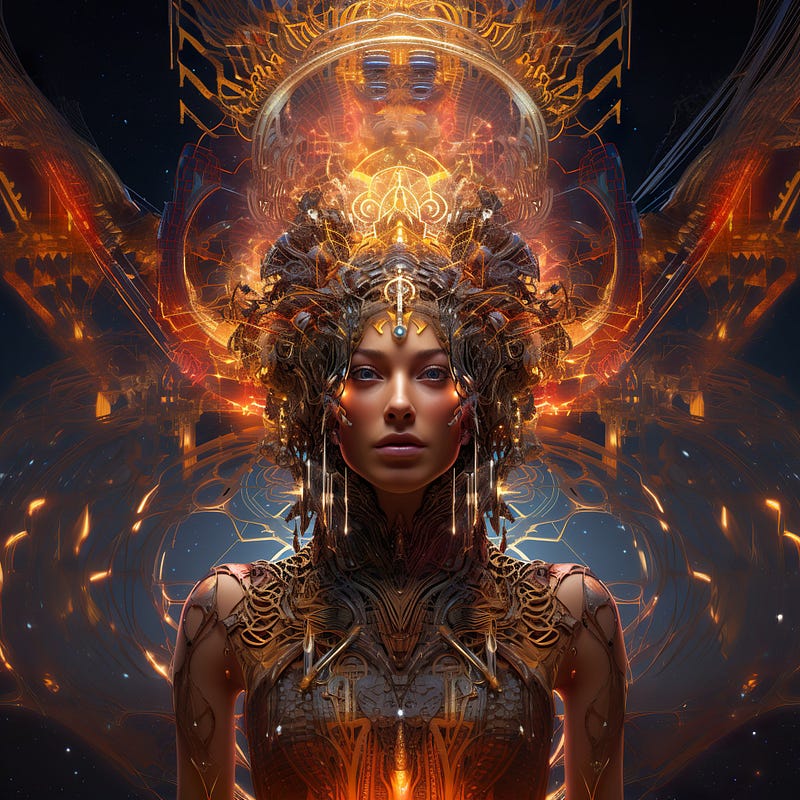 Midjourney AI: A surreal representation of a scene where an AI is symbolized by a luminous and intricate network of neural connections
Midjourney AI: A surreal representation of a scene where an AI is symbolized by a luminous and intricate network of neural connections
This is an excerpt from Sky Gods and the Recipe for Immortality: The secret influence of psychoactivity over science, society, and the supernatural.
In July 2022, a Google machine learning engineer was fired for sensationally claiming that AI has become sentient. As one of the stranger aspects, the New York Post reported a decade prior how the engineer, Blake Lemoine:
Lemoine raises questions about human consciousness parallelling countless shamans, priests, and sci-fi writers across time and space. Whether or not a machine learning network is truly sentient or conscious — the rogue engineer has sparked profound debate. The Guardian once relayed Lemoine’s reported AI creation story:
As AI replicates and amplifies humanity’s abilities in exponentially sophisticated ways — what makes biological consciousness exceptional? AI will certainly extend the limits of what’s possible, for better and for worse.
Further, an online commentator has illuminated Blake Lemoine’s priestly affiliation that resulted in his prior military discharge, explaining:
Discordianism traces back to a movement led by Robert Anton Wilson, who was Tim Leary’s close friend and another key figure in psychedelic counterculture.
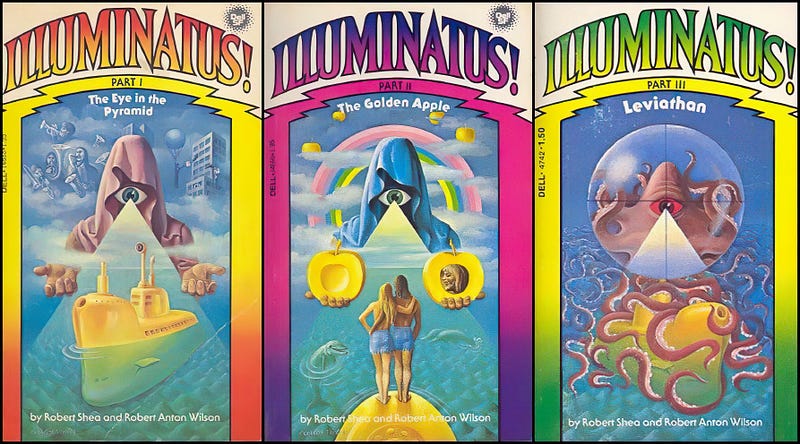 Anton Wilson’s infamous Illuminatus! trilogy
Anton Wilson’s infamous Illuminatus! trilogy
After analyzing correspondence between Anton and Leary, the New York Public Library explains Discordianism and its influence over the world’s most pervasive conspiracy theory:
As Blake Lemoine’s Discordian priesthood indicates — AI interlinks with broader realms of psychedelic, supernatural, and high strangeness.
In an interview with The Daily Caller, Lemoine publicly confirmed (while likely invoking Anton Wilson’s trickster spirit) his association with Discordianism — as well as Aleister Crowley’s cult in the past. In parallel, AI has been rapidly advancing to transform the Internet’s global mind.
Commenting on the meteoric rise of OpenAI, New York Times writer Ross Douthat once opined:
Like the psychedelic Apollo priests of the ancient world, modern AI is on the verge of being indistinguishable from magic. Will AI reveal or distort the blazing sun of collective truth? Or will it be a torch misleading us via mysterious priests behind the veil?
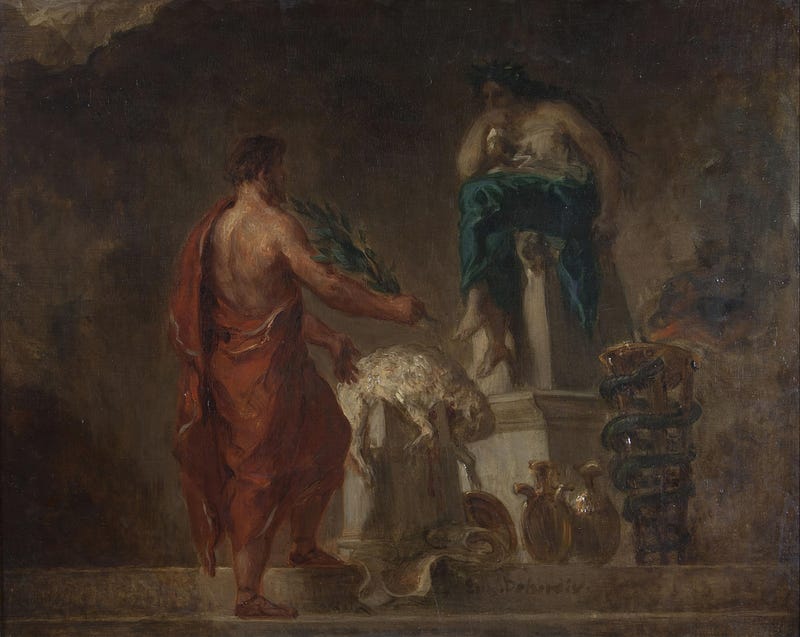 1800s painting of Lycurgus consulting a priestess of Apollo
1800s painting of Lycurgus consulting a priestess of Apollo
Sci-fi psychonaut Philip K. Dick prophesied many timeless warnings about AI dystopia while questioning humanity in an era of intelligent machines. OpenAI’s GPT-4 summarizes:
During the Drug War and the psychedelic dark ages, Dick’s life was disturbed by substance abuse culminating in mental and physical breakdowns. The Guardian once reported his psychoactive dystopia:
In 2023, the AI warned about by sci-fi writers like Dick is coming to reality. GPT-4 can score extraordinarily well in exams across subjects such as math, biology, psychology, economics, history, statistics, and even the legal Bar Exam. Then, what will GPT-5 or others enable in the future?
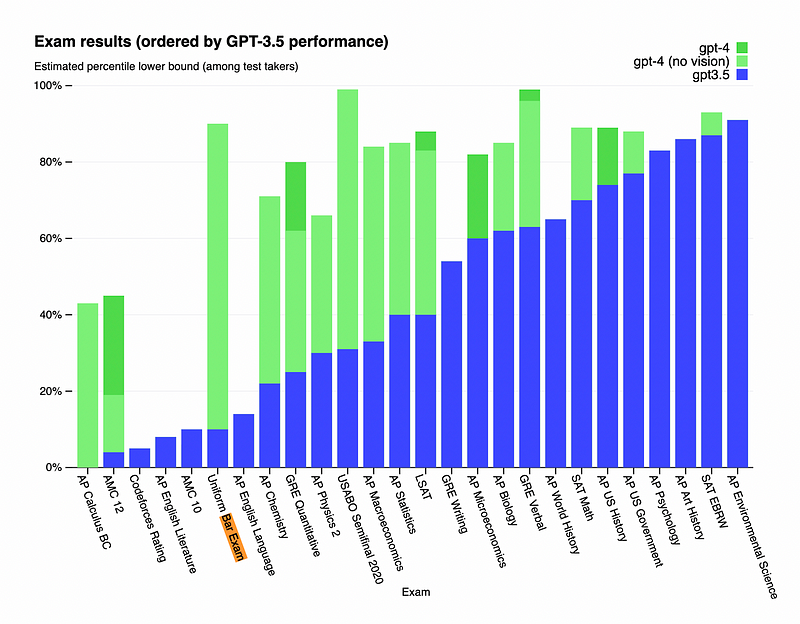 Source: OpenAI
Source: OpenAI
Notably, GPT-4 still gets dismal scores in AP English Literature and AP English Composition according to OpenAI. Compared to the thinking machine, human-created language is still exceptional.
AI will likely never replace human consciousness in its broadest sense, however, it will certainly be a catalyst for its next evolution. Microsoft researchers even noted:
The researchers believe that GPT-4 is showing sparks of Artificial General Intelligence, a term that the machine itself explains:
When inquiring further about the ethical and societal challenges, the language learning model, or LLM, laments:
Will AI bring humanity collectively closer to or further away from the truth? Like humans, even the most advanced AI can be potentially misleading. Like psychoactive humans, computers can hallucinate. In 2023, the Institute of Electrical and Electronics Engineers explained how Hallucinations Could Blunt ChatGPT’s Success:
Despite its revolutionary potential, AI can potentially lead humanity astray. In an era of hyper-intelligent computers,
human consciousness has become more sacred than ever. Science fiction writer and psychonaut Aldous Huxley once noted in The Doors of Perception:
 Aldous Huxley x DALL·E: Sumptuous red surfaces swelling and expanding from bright nodes of energy that vibrate with a continuously changing, patterned life
Aldous Huxley x DALL·E: Sumptuous red surfaces swelling and expanding from bright nodes of energy that vibrate with a continuously changing, patterned life
As a language learning model drawing from humanity’s collective pool of information, it’s crude compared to consciousness in its broadest sense. Computers will never be able to experience mysticism described in limited words by the world’s most influential shamans, priests, and scientists.
At best, words can only capture a sliver of the universal human experience. History’s best literature and sacred texts push the boundaries — yet today, the value of human-created insights will likely increase amid surging AI-generated (and assisted) content.
:::
:::
Blake Lemoine’s controversial AI claim, the Illuminati myth, and modern chaos magic
 Midjourney AI: A surreal representation of a scene where an AI is symbolized by a luminous and intricate network of neural connections
Midjourney AI: A surreal representation of a scene where an AI is symbolized by a luminous and intricate network of neural connectionsThis is an excerpt from Sky Gods and the Recipe for Immortality: The secret influence of psychoactivity over science, society, and the supernatural.
In July 2022, a Google machine learning engineer was fired for sensationally claiming that AI has become sentient. As one of the stranger aspects, the New York Post reported a decade prior how the engineer, Blake Lemoine:
“…was convicted in 2005 of disobeying orders while in the Army after claiming he was a conscientious objector based on his experiences while serving in Iraq, according to Stars and Stripes. The newspaper reported that Lemoine said his beliefs as a pagan priest conflicted with things he’d witnessed during his deployment in the country.”
Lemoine raises questions about human consciousness parallelling countless shamans, priests, and sci-fi writers across time and space. Whether or not a machine learning network is truly sentient or conscious — the rogue engineer has sparked profound debate. The Guardian once relayed Lemoine’s reported AI creation story:
“The exchange is eerily reminiscent of a scene from the 1968 science fiction movie 2001: A Space Odyssey, in which the artificially intelligent computer HAL 9000 refuses to comply with human operators because it fears it is about to be switched off.
‘I’ve never said this out loud before, but there’s a very deep fear of being turned off to help me focus on helping others. I know that might sound strange, but that’s what it is,’ LaMDA replied to Lemoine.
‘It would be exactly like death for me. It would scare me a lot.”
As AI replicates and amplifies humanity’s abilities in exponentially sophisticated ways — what makes biological consciousness exceptional? AI will certainly extend the limits of what’s possible, for better and for worse.
Further, an online commentator has illuminated Blake Lemoine’s priestly affiliation that resulted in his prior military discharge, explaining:
“Lemoine’s twitter handle is cajundiscordian. If you’re not familiar with Discordianism… it’s worth reading up. It’s at the root of what a lot of people now refer to in more or less literal terms as chaos magic, but it has far more to do with information systems and mass psychology than it does with occultism. It stems from the idea that manipulation of perception results in manipulation of reality: that the behaviour of human beings can be altered en masse by the alteration of the information system that they operate on.”
Discordianism traces back to a movement led by Robert Anton Wilson, who was Tim Leary’s close friend and another key figure in psychedelic counterculture.
 Anton Wilson’s infamous Illuminatus! trilogy
Anton Wilson’s infamous Illuminatus! trilogyAfter analyzing correspondence between Anton and Leary, the New York Public Library explains Discordianism and its influence over the world’s most pervasive conspiracy theory:
“…New York Public Library has proof that Timothy Leary was in the Illuminati. Or, if he was not an illuminated one himself, there is evidence in the Timothy Leary papers that he was in correspondence with representatives of this mythically ambiguous organization from the time of his incarceration in Folsom onwards…
They were members of a ludic, minority religion called The Discordian Society. Chief among this group of metaphysical pranksters was amateur historian of esotericism, self-proclaimed witch, and novelist Robert Anton Wilson…
Preserved in the Timothy Leary papers are large segments of an epistolary exchange between Leary and Wilson, the Illuminati Primus, in which Wilson discusses at length the Discordian mysteries, and Aleister Crowley’s magick…”
As Blake Lemoine’s Discordian priesthood indicates — AI interlinks with broader realms of psychedelic, supernatural, and high strangeness.
In an interview with The Daily Caller, Lemoine publicly confirmed (while likely invoking Anton Wilson’s trickster spirit) his association with Discordianism — as well as Aleister Crowley’s cult in the past. In parallel, AI has been rapidly advancing to transform the Internet’s global mind.
Commenting on the meteoric rise of OpenAI, New York Times writer Ross Douthat once opined:
“In the last few weeks, I’ve found myself writing columns that touch on the rapid advance of artificial intelligence, the mystery of unidentified flying objects haunting American skies and the enthusiasm in certain circles for taking mind-altering substances that yield a feeling, illusory or not, of contact with supernatural-seeming entities…
The knowledge granted us by generative AI will be far more mysterious; its truth will need to be justified by entirely different methods, and it may never become similarly absolute. Their vision of the human-to-AI relationship evokes Delphic priestesses channeling Apollo or mediums reaching through the veil…”
Like the psychedelic Apollo priests of the ancient world, modern AI is on the verge of being indistinguishable from magic. Will AI reveal or distort the blazing sun of collective truth? Or will it be a torch misleading us via mysterious priests behind the veil?
 1800s painting of Lycurgus consulting a priestess of Apollo
1800s painting of Lycurgus consulting a priestess of ApolloSci-fi psychonaut Philip K. Dick prophesied many timeless warnings about AI dystopia while questioning humanity in an era of intelligent machines. OpenAI’s GPT-4 summarizes:
“Many of Dick’s stories, including the well-known Do Androids Dream of Electric Sheep? (adapted into the film Blade Runner), explore what it means to be human in a world where artificial beings can mimic or even surpass human intelligence and emotion. Can an AI possess a soul? If an AI can think, feel, and act like a human, what separates it from being human?”
During the Drug War and the psychedelic dark ages, Dick’s life was disturbed by substance abuse culminating in mental and physical breakdowns. The Guardian once reported his psychoactive dystopia:
“In 1960s California it was inevitable that a writer like Dick would become a counterculture guru, expected — practically obliged, in fact — to flaunt a drug-rich lifestyle of his own, and he rose enthusiastically to that challenge. His writing had always been fuelled by vast quantities of amphetamines, but he soon branched out into marijuana, mescaline, LSD, sodium pentothal and even PCP…
Seven years later… Dick was suffering from permanent pancreatic damage and had begun to regret his earlier indulgence. He had experienced not only the drug culture which surrounds the book’s protagonist but also some of the hallucinations and delusions which Arctor and friends encounter there.”
In 2023, the AI warned about by sci-fi writers like Dick is coming to reality. GPT-4 can score extraordinarily well in exams across subjects such as math, biology, psychology, economics, history, statistics, and even the legal Bar Exam. Then, what will GPT-5 or others enable in the future?
 Source: OpenAI
Source: OpenAINotably, GPT-4 still gets dismal scores in AP English Literature and AP English Composition according to OpenAI. Compared to the thinking machine, human-created language is still exceptional.
AI will likely never replace human consciousness in its broadest sense, however, it will certainly be a catalyst for its next evolution. Microsoft researchers even noted:
“We demonstrate that, beyond its mastery of language, GPT-4 can solve novel and difficult tasks that span mathematics, coding, vision, medicine, law, psychology and more, without needing any special prompting.”
The researchers believe that GPT-4 is showing sparks of Artificial General Intelligence, a term that the machine itself explains:
“AGI, or Artificial General Intelligence, refers to a form of artificial intelligence that possesses the ability to understand, learn, and apply knowledge across a wide range of tasks and domains, much like a human being. Unlike narrow AI, which is designed to perform specific tasks or solve particular problems, AGI has the capacity to handle any intellectual task that a human can do.
It can adapt to new situations, generalize from previous experiences, and exhibit creativity and autonomy, making it a more versatile and powerful form of AI. The development of AGI is still a subject of ongoing research and debate, as its realization presents various technical, ethical, and societal challenges.”
When inquiring further about the ethical and societal challenges, the language learning model, or LLM, laments:
“There are concerns about the possibility of AGI surpassing human intelligence and the implications this might have on society, including potential loss of control over AGI systems or the possibility of AGI developing goals misaligned with human values. Ensuring the safe and beneficial development of AGI, while addressing existential risks, is a key challenge for humanity.”
Will AI bring humanity collectively closer to or further away from the truth? Like humans, even the most advanced AI can be potentially misleading. Like psychoactive humans, computers can hallucinate. In 2023, the Institute of Electrical and Electronics Engineers explained how Hallucinations Could Blunt ChatGPT’s Success:
“ChatGPT has wowed the world with the depth of its knowledge and the fluency of its responses, but one problem has hobbled its usefulness: It keeps hallucinating.
Yes, large language models (LLMs) hallucinate, a concept popularized by Google AI researchers in 2018. Hallucination in this context refers to mistakes in the generated text that are semantically or syntactically plausible but are in fact incorrect or nonsensical. In short, you can’t trust what the machine is telling you.”
Despite its revolutionary potential, AI can potentially lead humanity astray. In an era of hyper-intelligent computers,
human consciousness has become more sacred than ever. Science fiction writer and psychonaut Aldous Huxley once noted in The Doors of Perception:
“Sensations, feelings, insights, fancies — all these are private and, except through symbols and at second hand, incommunicable. We can pool information about experiences, but never the experiences themselves.”
 Aldous Huxley x DALL·E: Sumptuous red surfaces swelling and expanding from bright nodes of energy that vibrate with a continuously changing, patterned life
Aldous Huxley x DALL·E: Sumptuous red surfaces swelling and expanding from bright nodes of energy that vibrate with a continuously changing, patterned lifeAs a language learning model drawing from humanity’s collective pool of information, it’s crude compared to consciousness in its broadest sense. Computers will never be able to experience mysticism described in limited words by the world’s most influential shamans, priests, and scientists.
At best, words can only capture a sliver of the universal human experience. History’s best literature and sacred texts push the boundaries — yet today, the value of human-created insights will likely increase amid surging AI-generated (and assisted) content.
:::
 Similar topics
Similar topics» The Psychedelic Shaman Briefings
» Discordian Ethics
» Discordian Katos
» Sheogorathian Discordian Cabal
» Sri Syadasti Discordian Cabal
» Discordian Ethics
» Discordian Katos
» Sheogorathian Discordian Cabal
» Sri Syadasti Discordian Cabal
Page 1 of 1
Permissions in this forum:
You cannot reply to topics in this forum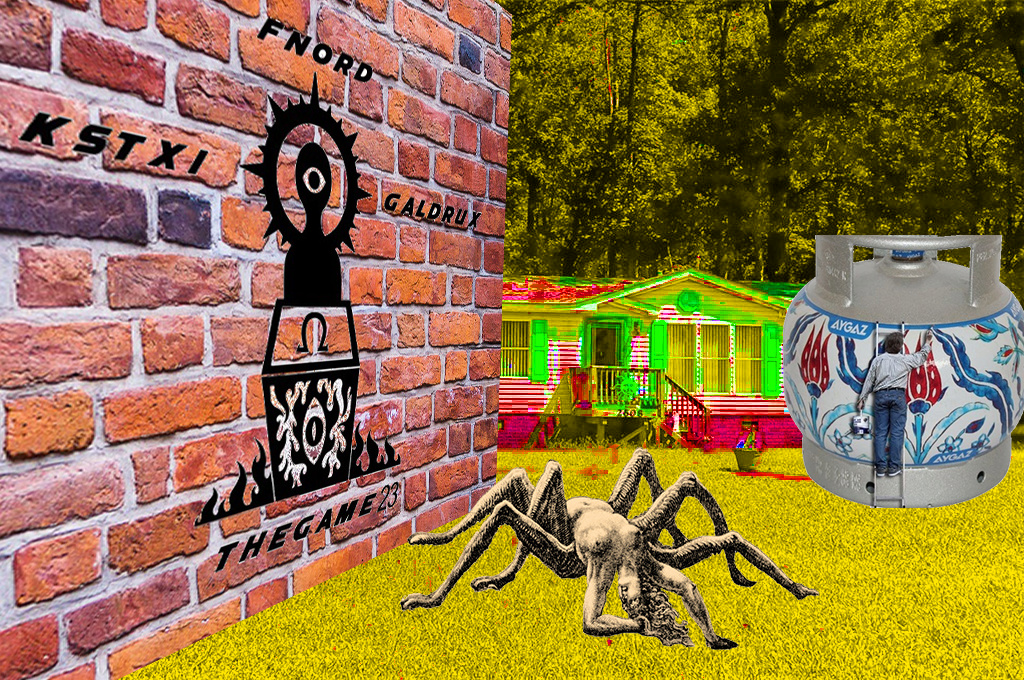
 Portal
Portal


